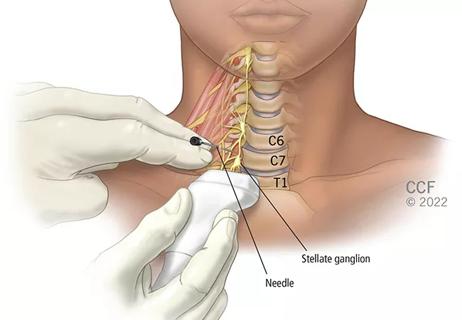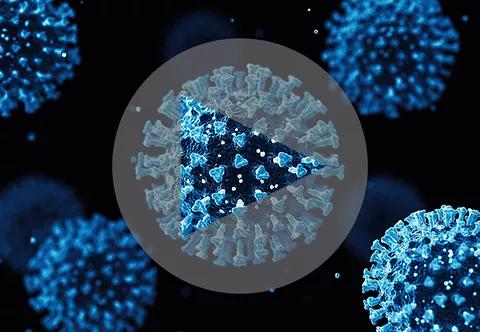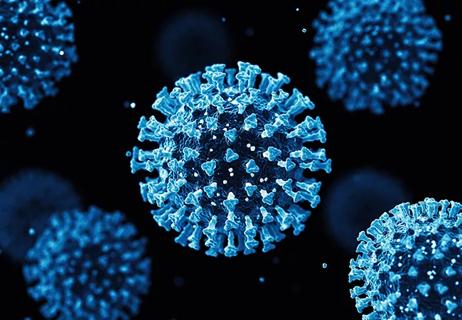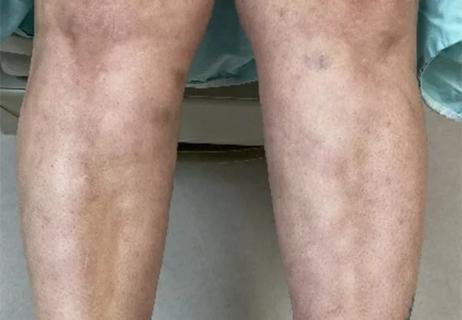Multidisciplinary team improves outcomes for patients with post-intensive care syndrome

Advertisement
Cleveland Clinic is a non-profit academic medical center. Advertising on our site helps support our mission. We do not endorse non-Cleveland Clinic products or services. Policy
Improvements in quality of care have resulted in a growing population of patients who survive critical illness each year. However, these intensive care unit (ICU) survivors frequently report a wide range of complications that may persist for months to years after their hospital discharge, calling attention to a need for extended support.
More than half of ICU survivors suffer from post-intensive care syndrome (PICS), which is new or worsening impairment in one or more of these domains: physical, cognitive function and mental health. Physical impairment is quite prevalent (25%-80%) and may include muscular weakness, fatigue, dyspnea, impaired pulmonary function, decreased exercise tolerance, sexual dysfunction, joint immobility, voice changes, dysphagia and respiratory failure, and can persist for up to five years. Cognitive impairment is present in 30% to 80% of ICU survivors, varies in severity, and includes memory loss and difficulty with concentration, comprehension and critical thinking.
Mental health impairment is also extremely prevalent, occurring in 8% to 57% of cases, and consisting of anxiety, depression and post-traumatic stress disorder (PTSD). The major risk factors for the development of PICS are acute respiratory distress syndrome (ARDS), sepsis, delirium, prolonged mechanical ventilation and multiorgan failure.
Studies on long-term outcomes of ICU survivors have also shown that one-quarter of patients require assistance with activities of daily living a year after ICU discharge, about one-third of patients do not go back to work, and another one-third of patients do not go back to their pre-ICU job, resulting in financial constraints and causing significant impact not only on patients’ lives but also on their family members’ lives.The mental health impairment that occurs in family members is known as PICS-Family.
Advertisement
Unfortunately, most of these impairments go undiagnosed or are inadequately treated due to multiple reasons, including a lack of awareness about PICS between providers. There is a shared interest by patients, families, clinicians and healthcare systems in improving the care for these patients. Several strategies have been used in order to decrease the prevalence of PICS, such as utilizing early mobility and post-acute care rehabilitation, reducing delirium, decreasing amounts of sedative medications, increasing involvement of families at the bedside, developing and debriefing ICU diaries, assessing nutrition, applying ABCDEF bundle, providing early psychological intervention and cognitive therapy, and creating post-discharge follow-up programs.
To address this unmet clinical need, Cleveland Clinic’s Post-ICU Recovery Clinic (PIRC) was created by a group of clinicians from the Respiratory Institute with the goal to provide better support for patients and families after critical illness, improve transitions of care from inpatient to outpatient, decrease readmission rates, improve morbidity and mortality rates, and ultimately promote wellness, encourage healing and support return to the best state of recovery possible.
The PIRC comprises an interdisciplinary team that includes a critical care physician, advanced practice provider, a pharmacist, psychiatrist, physical therapist, respiratory therapist and case manager. The course of ICU stay is debriefed, and patients are evaluated for mental health, cognitive and physical impairments by obtaining a history and physical exam, as well as applying screening tools that have been recommended as Core Outcome Measurements to evaluate ICU survivors after hospital discharge.
Advertisement
Inclusion criteria for Cleveland Clinic’s PIRC consists of shock, ARDS, delirium, cardiac arrest, prolonged MV (≥ 7 days), prolonged ICU stay (≥ 7 days) and COVID-19 patients with ICU length of stay ≥ 72 hours.
COVID-19, the disease caused by severe acute respiratory syndrome coronavirus 2 (SARS-CoV-2), was declared a pandemic on March 11, 2020, by the World Health Organization. With over 9.4 million cases and more than 230,000 deaths in the United States (at time of this publication), the pandemic will likely continue to have a great impact on patients, families and caregivers.
Patients with severe illness due to COVID-19 often develop critical illness with hypoxemic respiratory failure, most commonly ARDS, requiring ICU admission. COVID-19 survivors are at an even higher risk for developing PICS given the prevalence of prolonged mechanical ventilation with exposure to a greater amount of sedatives, which commonly leads to a higher frequency of delirium, limited physical therapy during and after hospitalization due to the risk of disease transmission, scarcity of family support due to restricted visitation during hospitalization, and constraints on social support after hospitalization due to the stigma of the disease.
Post-ICU care at rehabilitation centers, long-term acute care hospitals and skilled nursing facilities are also at risk of service limitations due to limited personal protective equipment, risk of transmission to caregivers and shortage in accessibility. During an ICU stay it is vital to utilize the daily ICU checklist and the ABCDEF bundle in order to mitigate the risk of PICS.Optimization of nutrition and sleep quality is also key. Prior to hospital discharge, it is crucial that patients are evaluated for the extent of physical, emotional and cognitive impairments, and that effective treatment strategies are initiated.
Advertisement
Post-hospital discharge, COVID-19 survivors who have been critically ill are offered to follow up at the PIRC within two to four weeks after hospitalization. The patients can opt for telemedicine (virtual visit) or an in-person visit. Prior to the clinic visit, the patient performs a pulmonary function test and a six-minute walk distance test, and has a chest X-ray. The patient then has a single visit where they see an interdisciplinary team of healthcare providers, has their ICU course debriefed, has a thorough medication and vaccination review done by a pharmacist, and has a comprehensive physical evaluation performed by physical therapy with determination if further physical therapy is necessary.
The patient is also seen by our mental health team and is evaluated for mental health problems, such as anxiety, depression and PTSD, as well as cognitive impairment using the Montreal Cognitive Assessment questionnaire. Pain, self-care, activities of daily living and quality of life also are evaluated.
Depending on their needs, patients may be referred to specialty centers such as those within the Neurological Institute for evaluation and treatment of cognitive deficits, to the Head & Neck Institute for evaluation of airway complications, or to nutrition and weight management programs, among others. A case manager is assigned to help patients navigate access to community resources and integrate recommendations. A summary of the clinic visit is sent to the patient’s primary care physician to promote continuity of care.
Advertisement
The combination of passionate providers utilizing a holistic approach, the application of patient-centered screening tools and the resources that Cleveland Clinic offers, including access to top-notch specialty centers, makes the PIRC a great option for COVID-19 patients who survive critical illness to achieve the best state of recovery possible.
| Patient needs revealed at Post-ICU Recovery Clinic visits |
|---|
| • Physical and occupational therapy |
| • Mental health support with referral to counseling, psychology, or psychiatry |
| • Detailed cognitive evaluation with referral to comprehensive neurocognitive testing as needed |
| • Medication review and reconciliation, initiation, or discontinuation |
| • Education of respiratory treatments such as inhalers and nebulizers |
| • Prescriptions for medical durable equipment |
| • Coordination of home health services for patients with physical impairments |
| • Referrals to specialists |
| • Coordination of care between providers |
| Patient needs revealed at Post-ICU Recovery Clinic visits |
| • Physical and occupational therapy |
| • Mental health support with referral to counseling, psychology, or psychiatry |
| • Detailed cognitive evaluation with referral to comprehensive neurocognitive testing as needed |
| • Medication review and reconciliation, initiation, or discontinuation |
| • Education of respiratory treatments such as inhalers and nebulizers |
| • Prescriptions for medical durable equipment |
| • Coordination of home health services for patients with physical impairments |
| • Referrals to specialists |
| • Coordination of care between providers |
Table. Biehl M, Sese D. Post-intensive care syndrome and COVID-19 — Implications post-pandemic. Cleve Clin J Med. 2020.
Dr. Biehl is a pulmonologist and intensivist at the Respiratory Institute and Medical Director of the Post-ICU Recovery Clinic (PIRC) at Cleveland Clinic. She has a special interest in ICU survivorship, ICU outcomes, patient-centered outcomes and humanizing the ICU.
Advertisement

Patients report improved sense of smell and taste

Clinicians who are accustomed to uncertainty can do well by patients

Unique skin changes can occur after infection or vaccine

Cleveland Clinic analysis suggests that obtaining care for the virus might reveal a previously undiagnosed condition

As the pandemic evolves, rheumatologists must continue to be mindful of most vulnerable patients

Early results suggest positive outcomes from COVID-19 PrEP treatment

Could the virus have caused the condition or triggered previously undiagnosed disease?

Five categories of cutaneous abnormalities are associated with COVID-19